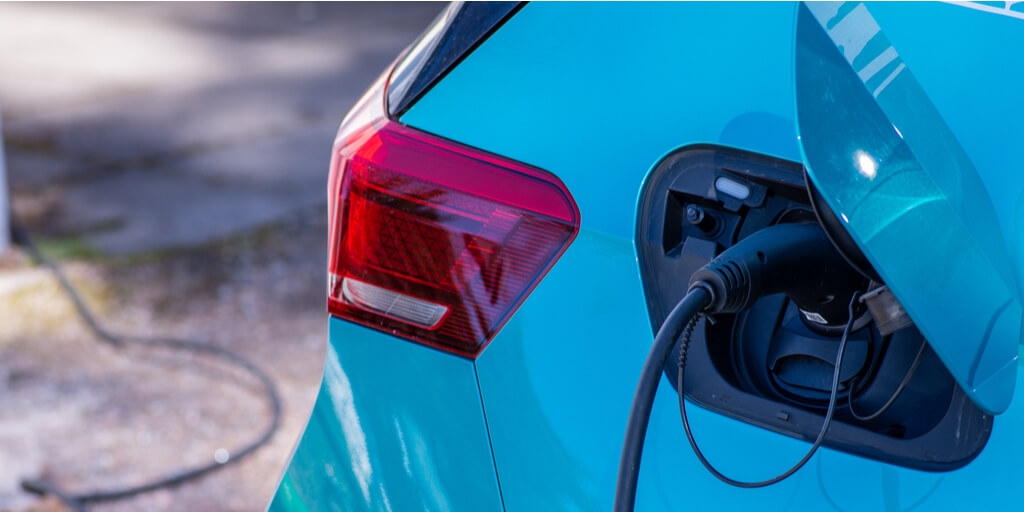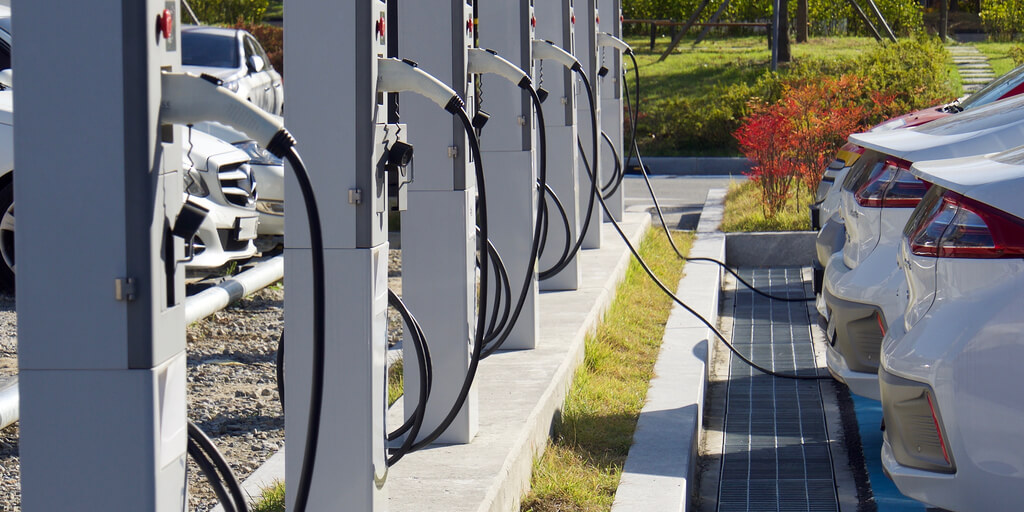- BY Joe Simpson
- POSTED IN Blog
- WITH 0 COMMENTS
- PERMALINK
- STANDARD POST TYPE

How much does it cost to run an electric car? This question is becoming increasingly more popular each year – but why?
By 2030, new cars fuelled by petrol and diesel alone won’t be sold in the UK – however, hybrid cars are still allowed. With that in mind, a large proportion of the population will be making the switch to electric cars. The question is, make the plunge now or wait until the new regulations come into play?
So, how do electric cars compare to fuel-based alternatives? Are they more expensive to run or will they save you money in the long term? In this post, we’re going to explore everything you need to know about the running costs of electric vehicles.
We’ll cover:
- Charging Costs of Electric Cars
- Electric Car Road Tax
- Servicing and Maintenance
- Typical Insurance Costs
- IDES: Electric Vehicle Charging Point Installation
Charging Costs of Electric Cars
Unlike “normal” vehicles, electric cars aren’t topped up at the fuel stations in a quick couple of minutes. Similar to your everyday electrical appliances, they rely on being charged up adequately for the journey ahead. So, while you’re saving money on rising fuel costs (the bane of everybody’s lives), your electricity bill will likely increase.
Electric vehicle owners have two options when charging – home charging or using public charging stations. When charging your car at home, you’ll have to install an electric vehicle charging station at your house. Of course, there’s an initial investment tied in with this, however, you could be eligible for potential funding and grants to contribute towards the cost.
You should make sure that you’re on the best energy tariff possible, as your electric vehicle charging costs will be added to your regular monthly bill. If you’re not getting the best deal possible, you’ll be paying more than you need to be to use your car – kind of like regularly filling up at a motorway service station.
The majority of charging will happen at home – it’s where you spend most of your time, right? However, if you make use of public charging stations while you’re out and about, you can cut your costs at every opportunity possible. The less you charge at home, the less it’ll cost you to run your car.
Electric Car Road Tax
Fuel-based cars are taxed on the amount of carbon dioxide they emit. Usually, you’ll see a pattern of older cars tending to cost more than modern ones. Plus, diesel cars tend to be more expensive to tax per annum too. Hybrids get a slight discount, however, it’s only a minimal saving.
Whereas, electric cars are exempt from annual road tax – result! After all, fully electric vehicles emit no CO2 at all, therefore, they needn’t pay road tax. Should you have the same car for five years, this could be a huge saving for you – as opposed to if you were paying over £140 road tax per annum with a fuel-based alternative.
Not only is this a key saving for you but it’s one less thing for you to worry about when organising the necessary paperwork for your vehicle. With fuel-based cars, it’s illegal to have your car on the road if it isn’t taxed – and if caught, you could be left clamped and hit with a huge fine. With electric cars, you needn’t worry about any of that.
Servicing and Maintenance
Each year, a lot of motorists send their cars into the garage for their regular servicing and maintenance checks. A lot of the time, people aren’t sure what work needs carrying out and are just praying that when they go to pick the vehicle up, they aren’t stung with a bill as long as their arm – we’ve all been there, haven’t we?
Of course, electric vehicles still require the same level of duty and care to ensure that they’re safe and road legal, however, they’re generally cheaper to service and maintain. But why? Quite simply, they have fewer moving parts and have fewer parts that are susceptible to wear over time.
Electric cars don’t need oil filters or cambelts – both of these are common parts that need changing on fuel-based cars and combined could both cost you upwards of £400 on average. Replacing parts on electric vehicles is where the real savings come in!
Typical Insurance Costs
Depending on your age or location, insurance prices can fluctuate massively. Although electric vehicles differ from conventional ones, they still require insurance to be driven legally. Unfortunately, electric vehicles tend to be more expensive to insure than other alternatives – this could be due to their infancy and relatively recent introduction.
Also, as they’re pretty recent to the market, the level of mechanics that can actually carry out key repairs on electric cars is far fewer than those of more conventional vehicles. This demand for skilled work causes prices to rise, whereas, as more people start to pick up these skills, we’ll see the price gradually fall.
Although more expensive, electric vehicle premiums can still be broken down into monthly costs and affordable repayments.
IDES: Electric Vehicle Charging Point Installation
At IDES, we’re starting to see the popularity of electric vehicles increase year on year. Of course, that’s great news for us but most importantly, the environment too. With that in mind, should you make the switch, you’re going to need the most suitable charging installation possible, aren’t you?
And that’s where we can help! We work with a wide range of individual customers and businesses who are looking to make themselves more efficient. Our expert team is vastly experienced at meeting our customers’ needs and requirements, therefore, they’re capable of advising the right solution for you.
Plus, we’re recognised by the Office for Zero-Emission Vehicles (OZEV) as an authorised installer – and our customers can take full advantage of the potential funding in line with the Workplace Charging Scheme (WCS) or the Electric Vehicle Homecharge Scheme (EVHS).
Should you opt for the wrong charge point solution, you won’t benefit from expected performance levels and will only need to reinvest. Of course, this will only add to the overall running costs of an electric vehicle. So, you need to be sure that you can instil full trust in your electrical contractor beforehand.
To ensure that the right solution is found, we offer free site surveys throughout the UK. Therefore, we can visit your premises and carry out full checks to ensure that your every need is covered. From Exeter to Inverness, London to Glasgow – and everywhere in between – our expert team can help you or your business.
Choose IDES Today!
Making the switch from conventional vehicles to electric ones can be daunting. For many, they’re a relatively new territory and it can feel like there’s a lot of changes you’re required to make to get yourselves ready. However, there’s no need to let it overwhelm you – especially with the help of IDES.
We can help you with all of your electric vehicle charging needs. Whether it’s a quote on an installation or just some general advice, our team is always on hand to help. So, if you’re ready to future proof your vehicle and business, please don’t hesitate to get in touch with us – we look forward to hearing from you!



